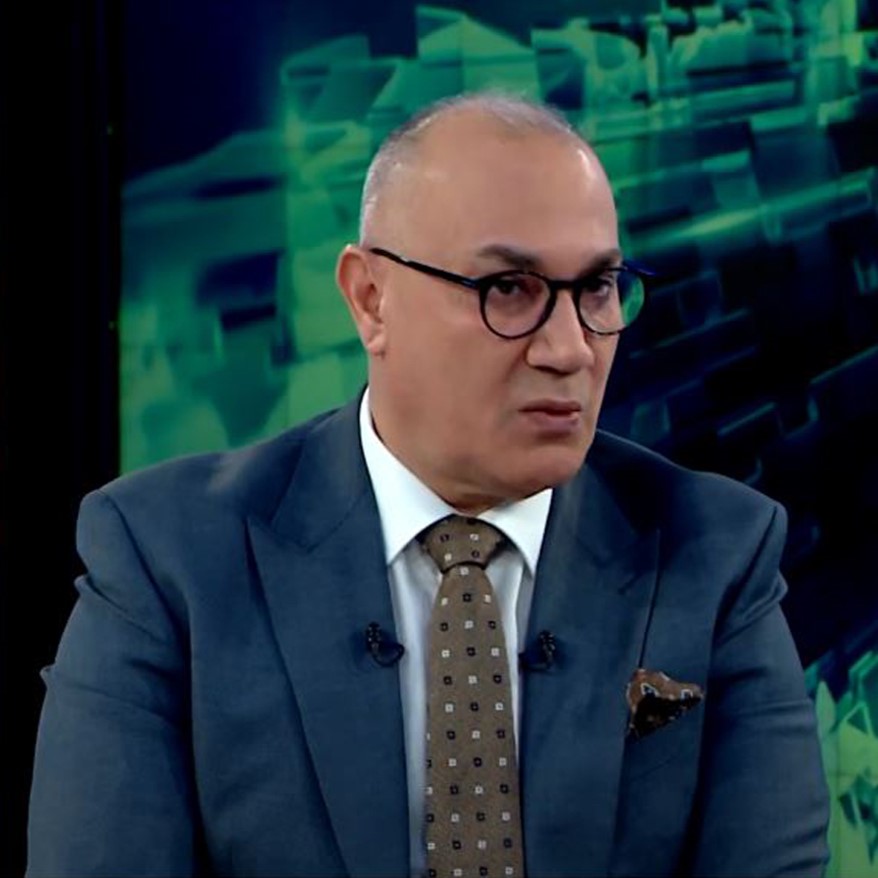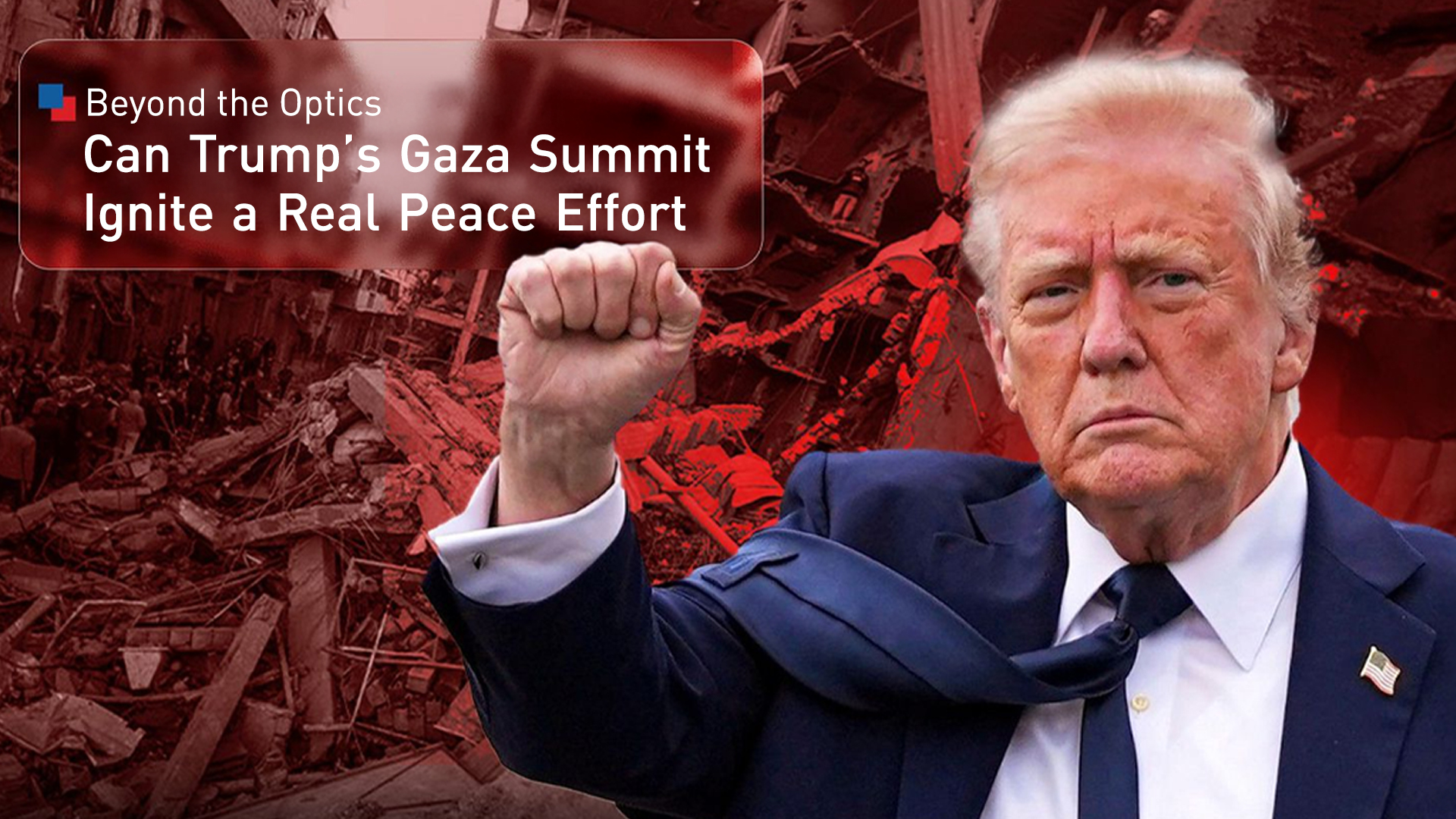
Mohammed Ihsan
Writer
Beyond the Optics: Can Trump’s Gaza Summit Ignite a Real Peace Effort.
Trump championed the Sharm el-Sheikh summit as a landmark deal, framing it as a personal diplomatic victory that will "end on his watch." He secured international backing for his Gaza peace framework while warning Hamas to disarm or face U.S.-led forced demilitarization.

As U.S. President Donald Trump stood beside Egyptian President Abdel Fattah el‑Sisi in Sharm el‑Sheikh this week, it was clear the optics of diplomacy were in full effect. Banners called it the beginning of a new chapter for the Middle East. Delegations from over 20 countries looked on. The centerpiece: The Trump Declaration for Enduring Peace and Prosperity, a lofty title for a document long on promises but short on practical solutions.
Trump spoke of an “age of hope.” Sisi called it a “last chance” for peace and awarded Trump “the Order of the Nile”, Egypt’s highest civilian honor. For both men, the moment carried political symbolism. But for the people of Gaza and Israel, the absence of real power brokers at the table raises serious doubts about what, if anything, this summit can truly deliver.
Neither Hamas nor the Israeli government was present. Israeli Prime Minister Benjamin Netanyahu declined to attend, citing a religious holiday. Hamas, the de facto authority in Gaza, wasn’t even invited. In effect, a ceasefire and reconstruction framework is being discussed without those who can make or break it. That absence undermines the entire foundation of the summit’s credibility.
The declaration signed by Egypt, Turkey, Qatar, and the U.S. affirms the need for diplomacy, mutual security, and the rights of both Palestinians and Israelis. Yet it offers no mechanism for implementation, no guarantees, and no clear plan for the day after. Critical issues such as Gaza’s governance, the disarmament or integration of Hamas, border control, and long-term security for both sides remain untouched. For a summit that brands itself as historic, the vagueness is telling.
In fairness, Egypt’s convening of the summit is notable. Cairo has long positioned itself as a mediator between Israel and Palestinian factions, and this summit underscores that role. Hosting such an event boosts Egypt’s diplomatic image, especially as the region faces instability stretching from Gaza to Lebanon to the Red Sea. But peace is not made through declarations alone. Without a structure for accountability and without the presence of the primary actors on the ground, the path forward remains as fragile as ever.
For Trump, the summit offered a return to international diplomacy and a platform to portray himself once again as a dealmaker on the global stage. For Sisi, it bolstered Egypt’s claim to regional leadership and underscored its influence among Arab and Western powers alike. But for millions affected by the ongoing war, what matters is not who shakes hands on stage, but who stops the next missile, who rebuilds the next school, who guarantees the next safe night of sleep.
Iran’s Silence, and Influence, in the Shadows
Notably absent from the summit was Iran, a regional actor whose influence on Gaza, and the broader Israeli-Palestinian conflict, cannot be ignored. While Iran has officially condemned the war in Gaza and expressed rhetorical support for Palestinian resistance, its role remains far more complex. Tehran maintains deep ties with Hamas and other armed factions in the region, not least through financial and military support. Its influence has helped shape Hamas’s strategic posture, and, indirectly, the ongoing cycle of conflict.
From Tehran’s perspective, summits like the one in Sharm el‑Sheikh are viewed with skepticism, if not outright dismissal. Iranian officials see them as U.S.-led attempts to sideline resistance movements, promote normalization with Israel, and reshape regional alliances in a way that weakens Iran’s axis of influence, which extends from Gaza and Lebanon to Syria and Iraq.
By excluding Hamas, and by extension Iran, the summit avoids some of the most difficult conversations. But peace cannot be brokered without acknowledging all players with real leverage on the ground, even those considered adversaries. Ignoring Iran’s role may make for easier headlines, but it limits the scope of what any agreement can realistically achieve.
Symbolism vs Substance
There is, certainly, value in symbolism. Bringing 20 nations together for any cause is not insignificant. It shows a shared desire, however tentative, to turn the page on a devastating chapter. But history has shown that high-level summits often collapse under the weight of unspoken assumptions and missing actors. The risk is that such gatherings create the illusion of progress while delaying the harder, more uncomfortable conversations required to achieve lasting peace.
If there is to be a way forward, it must include those currently left out. That means direct engagement with both Israeli and Palestinian leadership, including those whom many would prefer not to acknowledge. Exclusion may serve political narratives, but it does little for the pursuit of actual peace.
In the end, history will judge this summit not by its optics or accolades, but by whether it planted real seeds of progress. True peace demands more than declarations; it requires the courage to engage all voices, even those we disagree with. While this gathering may not have delivered concrete solutions, it showed that the world still has the appetite, and perhaps the will to keep trying. And in a region long overshadowed by conflict, even the smallest step toward dialogue is a step worth taking.
The views expressed in this article are those of the author and do not necessarily reflect the editorial stance of Kurdistan24 English.